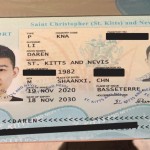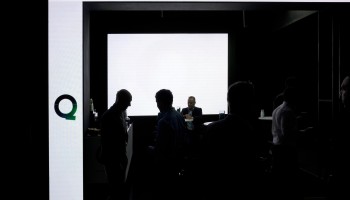The lawsuit was filed on Tuesday in an effort to ban the company from any further interference with Apple’s products and services. The NSO Group’s spyware has undermined the tech company’s security protocols and users’ privacy rights via electronic surveillance.
Court documents reveal that Apple has accused NSO Group of being “notorious hackers” and “amoral 21st century mercenaries” through their development and sale of spyware technologies which have targeted its users.
Apple has also accused NSO Group of enabling its customers to target government officials, journalists, businesspeople, activists, and academics across 50 countries for their own commercial gain.
“They permit attacks, including from sovereign governments that pay hundreds of millions of dollars to target and attack a tiny fraction of users with information of particular interest to NSO’s customers,” Apple argued in court documents, highlighting the “insidious” and “highly sophisticated” nature of NSO’s spyware technologies.
Pegasus is designed to intercept and extract information from mobile devices in order to access the users’ private information, calls, messages, and location without their knowledge.
Another program, known as ‘FORCEDENTRY,’ is a “zero-click” exploit used by hackers to install Pegasus onto the victim’s device without any action or input on their part.
Apple has stated that they have since patched this vulnerability, meaning that users need no longer fear being targeted by it.
They have also created security protocols designed to alert and assist users in the event of any state-sponsored attacks on their devices.
NSO Group has attracted significant notoriety as of late for how it has leased its spyware to authoritarian figures who have used it to arrest and persecute journalists, activists, and anyone deemed a threat to their hold on power.
This has been well-documented in several international investigations, lawsuits, and government sanctions, despite the group’s claim that it sells its spyware “solely to law enforcement and intelligence agencies of vetted governments for the sole purpose of saving lives through preventing crime and terror acts.”
NSO has, however, admitted that its spyware has violated “fundamental human rights” recognized by governments and human rights groups, according to court documents.
“Mercenary spyware firms like NSO Group have facilitated some of the world’s worst human rights abuses and acts of transnational repression, while enriching themselves and their investors,” said Ron Deibert, director of the University of Toronto’s Citizen Lab.
The Israeli surveillance firm has experienced more than its fair share of legal woes in this month alone.
On Nov. 3, the United States blacklisted NSO Group and placed them on the ‘Entity List,’ which bans the group from any further trade or interaction with U.S. companies.
The U.S. Department of Commerce justified its decision by stating that NSO’s activities run “contrary to the national security or foreign policy interests of the United States.”
And on Nov. 11, a U.S. appeals court denied NSO's motion to dismiss a lawsuit brought on against them by WhatsApp for allegedly infiltrating its servers to infect 1,400 of its users’ mobile devices with malware.
The Israeli surveillance firm attempted to classify itself as a “foreign agent” and argued that it should be protected from liability via “foreign sovereign immunity,” but the courts did not agree.
From this lawsuit, Apple is seeking a permanent injunction on NSO to ban them from further use of any Apple software, services, or devices.
There are 1.65 billion active Apple devices worldwide.






